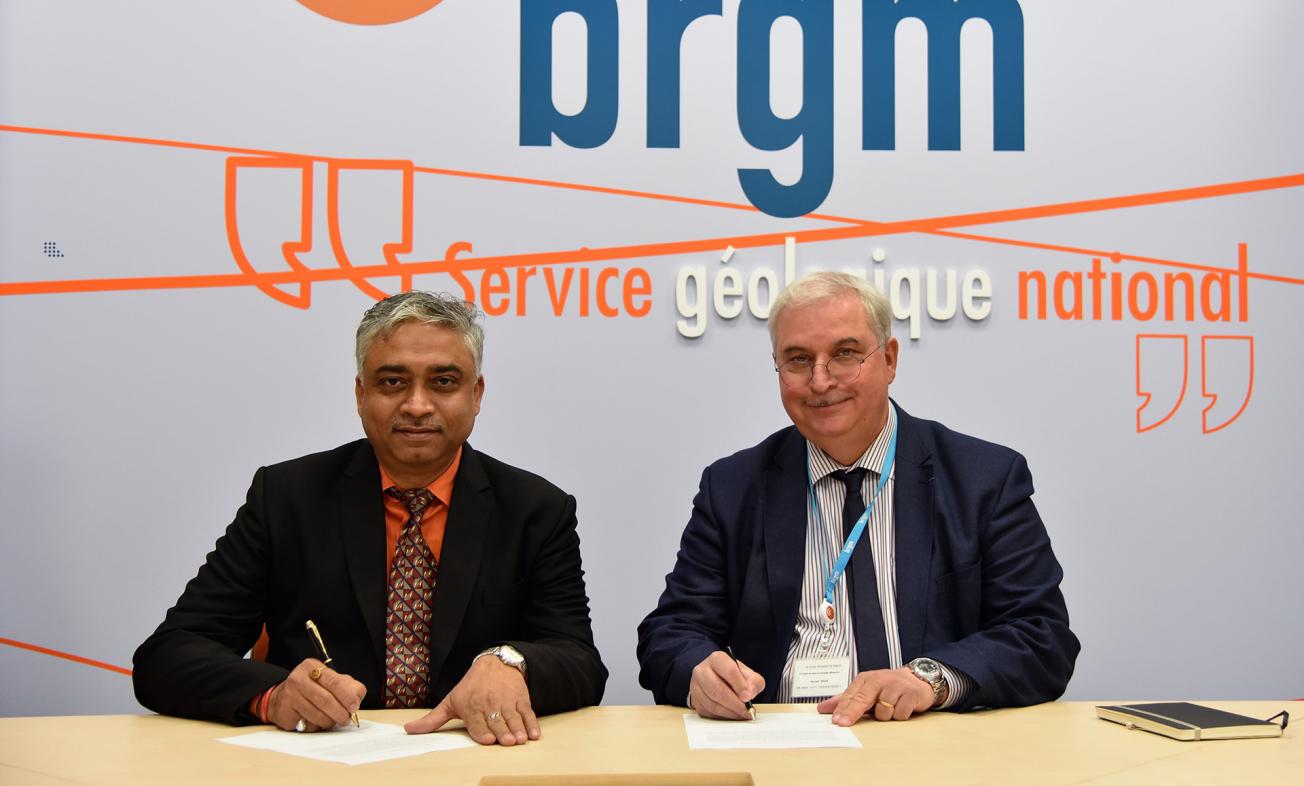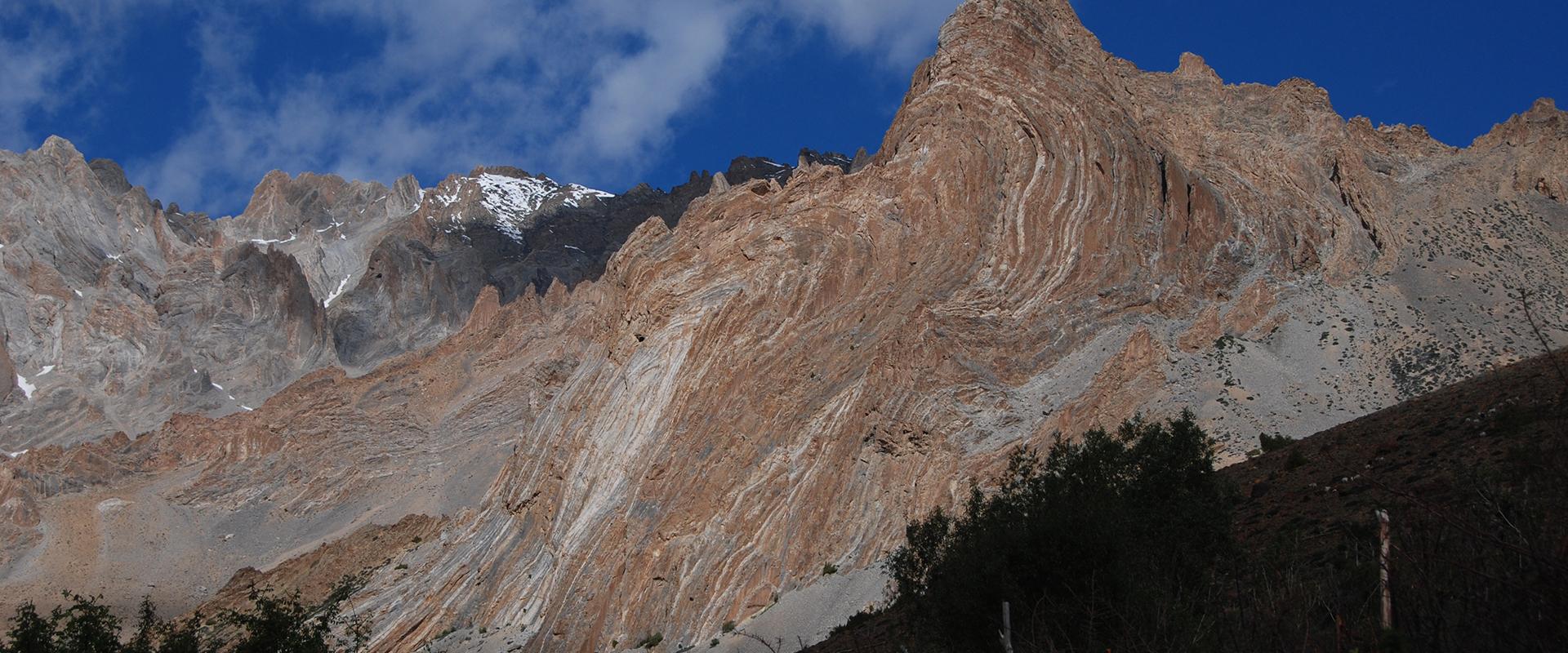
Dr Tiwari, Director of the NGRI, and Pierre Toulhoat, deputy managing director of the BRGM, signed a one-year renewal of the cooperation agreement between the two organisations on 5 March 2019, marking the 20th year of studies by the Franco-Indian Groundwater Research Centre.
© BRGM
On 5 March 2019, the BRGM and India's NGRI (National Geophysics Research Institute), signed the 9th amendment to their cooperation agreement, which will extend the work of the Franco-Indian Groundwater Research Centre, CEFIRES, for a further year.
The new agreement marks the 20th year of BRGM cooperation with India on integrated groundwater resource management.
Working for sustainable groundwater resource management in India
India is the world's largest consumer of groundwater, both for drinking water and irrigation. Overabstraction is causing water tables to drop to critical levels and degrading water quality.
The CEFIRES is focusing in particular on aquifers, or so-called "bedrock" groundwater reservoirs. These occur across most of India and are characterised by the hardness of the fractured and weathered reservoir rock through which water circulates.
The research addresses aquifer recharge, both natural and artificial, in formations of this type, characterisation of their heterogeneity and how it affects reservoir functions at different scales, the quality of the groundwater and management of these resources through studies that combine geology, geochemistry, hydrogeology, geophysics and socio-economics and draw on the data collected by two observatories (Chouttuppal and Maeshwaram) of the H+ network that forms part of the OZCAR research infrastructure.







